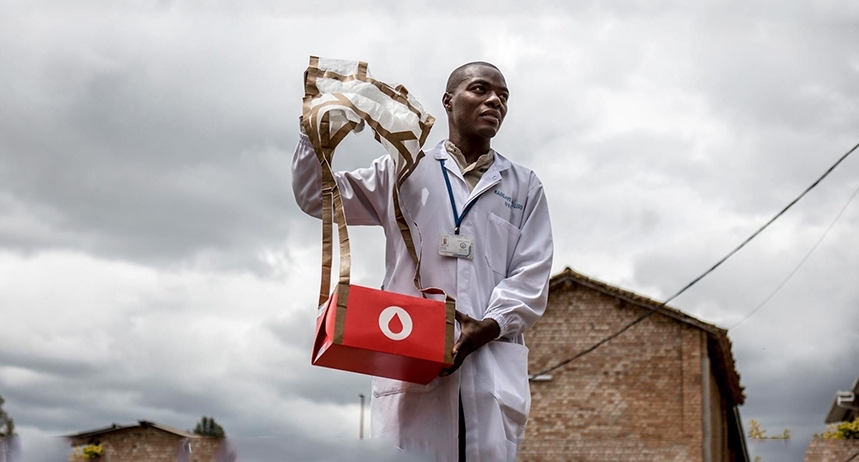Zipline, with its long distance drones, has been delivering life-saving medical equipment and materials to hard-to-reach villages throughout Rwanda and Ghana. Photo Source: Zipline The biggest gamechanger in the fight against Covid-19 has been the acceptance of the usage of drones. Even as the pandemic has stifled economies worldwide, it has also led to governments adopting measures to make use of drones and data for good, to improve health supply chains and open up new perspectives within Africa.
Over the last few years, the African continent has been core to an exciting and rapidly expanding drone industry. In fact, African countries like Rwanda, Cameroon, Malawi, South Africa, and Kenya are increasingly open to the use of drones across various industries including tourism, health, ecommerce, and most importantly, humanitarian relief.
One has to only look at drone companies like Zipline to realise just how great the need is in some African nations for the timely delivery of blood, medication and other medical supplies. Zipline drones, which have already made over 25,000 life-saving deliveries, can carry 1.8kg per flight if more is needed, multiple drones are sent together. The drones have a service radius of around 50 miles (80 km) and an average flight time of 30 minutes, which would have taken a truck 5 hours to get to the patient and back.
Like Zipline, many drone companies like Swoop Aero, Wingcopter, UAVAid among others have been expanding their operations within the continent – especially with medical deliveries. In October, Australia-based Swoop Aero announced its preparedness to support Blantyre in Malawi in transporting Covid-19 samples from Mwanza Border to Queen Elizabeth Central Hospital (QECH) through air by use of drones. The drones can transport up to 300 samples per trip and take four to five flights a day.
Meanwhile, Wingcopter, developer of autonomous delivery drones for humanitarian and commercial applications, is looking to expand its drone delivery network, with its partners UNICEF and the African Drone & Data Academy (ADDA). Wingcopter’s concept envisions setting up a locally operated delivery drone network in Malawi to support the local healthcare system, giving on-demand access to medical supplies such as Covid-19 test kits or vaccines. After proving the concept’s viability and successful implementation in Malawi, Wingcopter and UNICEF plan to adapt the concept and scale to Rwanda.
Meanwhile, UK-based UAVaid signed an agreement with Halkin Group, paving the way for their drones to be brought to Kenya […]
